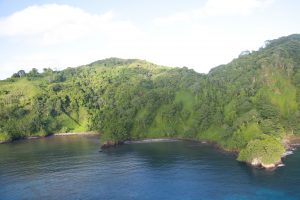Earlier this month, Australia’s Senate Foreign Affairs, Defense, and Trade References Committee recommended the country “explore reinvigorating” the India-Australia-France trilateral dialogue on the Indo-Pacific. This comes at a time when Canberra is seeking to play a more robust, independent, strategic role in the region by simultaneously bolstering its military capabilities as well as partnering with key states. As regional powers look beyond the alliance system, partly spooked by recent American unpredictability, to a more flexible networked architecture involving a range of often-overlapping minilateral arrangements and consultative mechanisms, the India-Australia-France trilateral dialogue could be an interesting and useful addition.
It also comes at a time when Paris is reasserting itself as a resident Indo-Pacific state by virtue of its presence in the Indian Ocean. This became manifestly clear last year when France’s Defense Minister Florence Parly made a vigorous case for her country’s Indo-Pacific role in a speech at the Shangri-La Dialogue in Singapore. (Colleague Ankit Panda and I both have commented on her speech in these virtual pages.)
When it comes to France’s vision for the region, India and Australia play key roles. In May 2018 during a visit to Canberra, French President Emmanuel Macron pitched a new strategic axis involving the three countries. Commenting on growing Chinese assertiveness in the region, Macron noted: “We’re not naive: if we want to be seen and respected by China as an equal partner, we must organize ourselves.” While many in Australia remained unconvinced about the idea, there is broad consensus in all three countries around the salience of three-way strategic consultations.
What is very interesting about the proposal of a trilateral India-Australia-France dialogue is how it has been shaped by a group of prominent think-tank experts, illustrating the influence of Track 2 and Track 1.5 diplomacy in the region.
Australian National University’s National Security College head Rory Medcalf – who along with India’s C. Raja Mohan and France’s Bruno Tertrais – originally pitched the idea of a three-way dialogue explained the background to The Diplomat. He noted: “The three of us [Medcalf, Mohan, and Tertrais] had been discussing the idea for several years, as it made complete sense based on our recognition of increasingly convergent interests. We face many of the same challenges but from differing vantage points. As democracies, we can be frank in sharing differing perspectives, to mutual benefit.” He added that “it is useful to be able to share our viewpoints with neither China nor the United States in the room.” According to Medcalf, Carnegie India, the Fondation pour la recherche stratégique, and the National Security College at the Australian National University held discussions, which have gone on to shape official policy.
As Medcalf noted, “I think it is fair to say that the dialogue was helpful in informing some high-level government interactions, notably the Macron visit to Australia in May 2018.” Scholars as well as government officials from India, Australia, and France had met on the sidelines of the Raisina Dialogue — a foreign-policy conference co-organized by the Observer Research Foundation and India’s Ministry of External Affairs – in January 2018.
An op-ed by Mohan, Medcalf, and Tertrais gives a sense of what a future official trilateral dialogue between India, Australia, and France might focus on. They write: “Between their island territories — France’s Reunion and Mayotte, Australia’s Cocos and Christmas islands and India’s Andaman and Nicobar islands — they possess a triangle of some of the most strategic maritime surveillance real estate in the Indian Ocean.” As China pushes ahead in the Indian Ocean – its navy now has a regular presence there – all three countries realize the need for shared maritime domain awareness (MDA). Carnegie India scholar Darshana Baruah has outlined concrete ways in which India and Australia and India and France can collaborate around MDA in the Indian Ocean.
The official trilateral dialogue – as and when that happens – is also expected to focus on “softer” issues requiring lesser political capital to push on the agenda. Medcalf notes that since Macron’s Canberra visit, Australia and France are collaborating on an environmental and transnational security “risk mapping” project focusing on the Indian Ocean at a non-governmental level. At a later stage, India could also join the initiative, he hopes.
But serious bottlenecks remain before the trilateral dialogue materializes, including the question of bureaucratic capacity and preference for bilateral dealings from all three sides. An additional complication in Australia-France relations that has surfaced over the past year or so involves an agreement between a French firm and the Royal Australian Navy around 12 new attack submarines. The delay – and possible collapse – of that deal complicates the possibility of India-Australia-France trilateral cooperation, an Australian scholar privately noted.

































